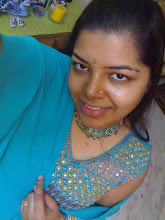Vision 2020 means that by the year 2020, Malaysia can be a united nation, with a confident Malaysian society, infused by strong moral and ethical values, living in a society that is democratic, liberal and tolerant, caring, economically just and equitable, progressive and prosperous, and in full possession of an economy that is competitive, dynamic, robust and resilient.
There can be no fully developed Malaysia until we have finally overcome the nine central strategic challenges that have confronted us from the moment of our birth as an independent nation.
-The first of these is the challenges of establishing a united Malaysian nation with a sense of common and shared destiny. This must be a nation at peace with itself, territorially and ethnically integrated, living in harmony and full and fair partnership, made up of one 'Bangsa Malaysia' with political loyalty and dedication to the nation.
-The second is the challenge of creating a psychologically liberated, secure, and developed Malaysian Society with faith and confidence in itself, justifiably proud of what it is, of what it has accomplished, robust enough to face all manner of adversity. This Malaysian Society must be distinguished by the pursuit of excellence, fully aware of all its potentials, psychologically subservient to none, and respected by the peoples of other nations.
-The third challenge we have always faced is that of fostering and developing a mature democratic society, practising a form of mature consensual, community-oriented Malaysian democracy that can be a model for many developing countries.
-The fourth is the challenge of establishing a fully moral and ethical society, whose citizens are strong in religious and spiritual values and imbued with the highest of ethical standards.
-The fifth challenge that we have always faced is the challenge of establishing a matured, liberal and tolerant society in which Malaysians of all colours and creeds are free to practise and profess their customs,cultures and religious beliefs and yet feeling that they belong to one nation.
-The sixth is the challenge of establishing a scientific and progressive society, a society that is innovative and forward-looking, one that is not only a consumer of technology but also a contributor to the scientific and technological civilisation of the future.
-The seventh challenge is the challenge of establishing a fully caring society and a caring culture, a social system in which society will come before self, in which the welfare of the people will revolve not around the state or the individual but around a strong and resilient family system.
-The eighth is the challenge of ensuring an economically just society. This is a society in which there is a fair and equitable distribution of the wealth of the nation, in which there is full partnership in economic progress. Such a society cannot be in place so long as there is the identification of race with economic function, and the identification of economic backwardness with race.
-The ninth challenge is the challenge of establishing a prosperous society, with an economy that is fully competitive, dynamic, robust and resilient.
The success of this country comes from our unity and the most important thing is our leaders. For example, our Prime Ministers from Tunku Abdul Rahman to Tun Dr. Mahathir’s we can see the development of our country and stabilize relationship with other countries. This two factors has changed our mind that our nation and our country can do everything to success if we have desire to change.

